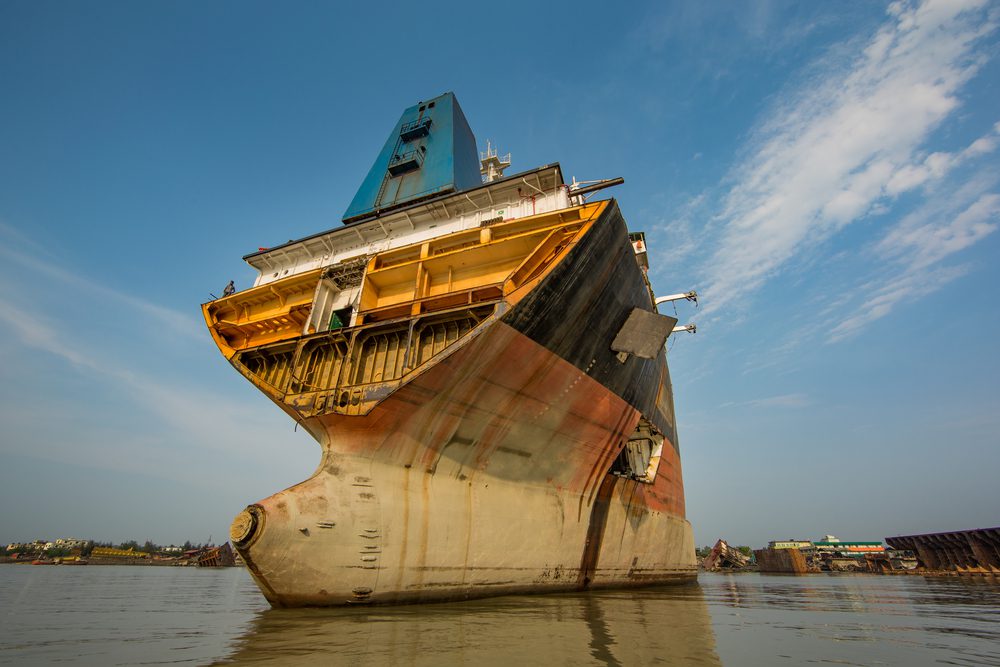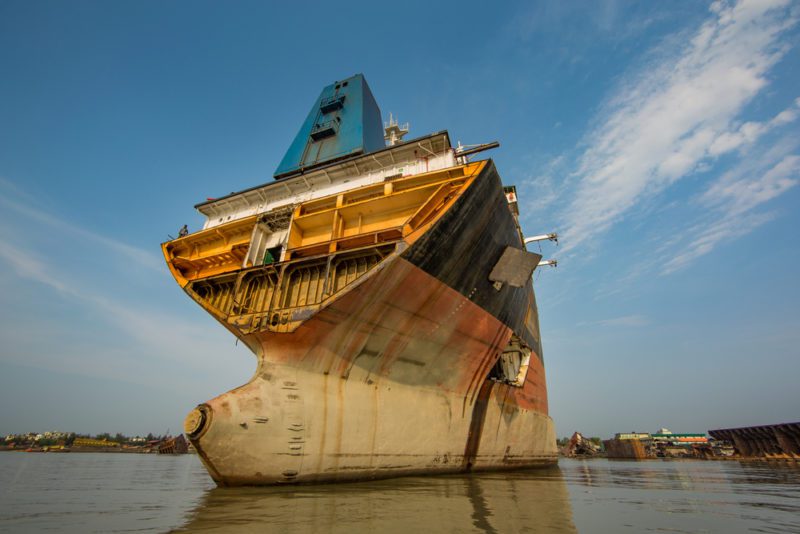Cruise Ship Shipbreaking Booming in Turkey
Updated: November 17, 2020 (Originally published October 2, 2020) By Bulent Usta ALIAGA, Turkey, Oct 2 (Reuters) – Business is booming at a sea dock in western Turkey, where five...

Updated: February 7, 2020 (Originally published February 4, 2020)

A total of 674 ocean-going ships and offshore vessels were dismantled worldwide in 2019, with the vast majority broken down on the beaches of Bangladesh, Indian, and Pakistan, the NGO Shipbreaking Platform said in its yearly report.
According to new data released by the group, among the 674 ocean-going commercial ships and offshore units sold for scrap last year, 469 large tankers, bulkers, floating platforms, cargo and passenger ships were broken down on only three beaches in Bangladesh, India and Pakistan, amounting to near 90% of the gross tonnage dismantled globally.
The group said the numbers show the shipping industry’s continued use of the controversial beaching method for end-of-life ships.
In 2019, the NGO Shipbreaking Platform counted 26 deaths and 34 severe injuries among workers at the world’s shipbreaking yards. Bangladesh had a particularly bad year in terms of fatalities, accounting for 24 of the worker deaths worldwide.
“Bangladesh remains the favoured dumping ground for end-of-life ships laden with toxics,” said Ingvild Jenssen, Executive Director and Founder of the NGO Shipbreaking Platform. “There is wide-spread knowledge of the irreparable damage caused by dirty and dangerous practices on tidal mudflats, yet profit is the only decisive factor for most ship owners when selling their vessels for breaking.”
The group has called out the United Arab Emirates and Greece as being the world’s worst dumpers in 2019, sending 45 and 40 ships to South Asia beaches, respectively.
Meanwhile, the worst corporate dumper was Taiwanese container carrier Evergreen, who sent eleven vessels to South Asia in 2019.
Evergreen has defended its shipbreaking practices, saying it’s ship demolition and recycling policy requires the shipbreaking yard selected by all buyers of its decommissioned vessels must be ISO certified (ISO 9000, 14001, 18001 or 30000) and implement class approved standards of the 2009 Hong Kong Convention (HKC), which is not required under current regulations.
2019’s numbers were down slightly from the 744 large ocean-going commercial vessels sold to scrap yards in 2018. Among those, 518 were broken down on beaching yards in Bangladesh, India and Pakistan.
Notably, 2019 marked the first year of the EU Ship Recycling Regulation, requiring EU-flagged vessels to be recycled in one of the currently 41 approved facilities around the world included in an EU list approved ship recycling facilities which have been independently audited and approved.
“Policy makers need to adopt effective measures to divert ships towards the sites that have been approved by the EU,” said Jenssen. “The fact that old ships are registered under flags known for the poor implementation of international maritime law sheds serious doubt over the effectiveness of legislation based on flag state jurisdiction only, including the EU Ship Recycling Regulation.”

Sign up for gCaptain’s newsletter and never miss an update

Subscribe to gCaptain Daily and stay informed with the latest global maritime and offshore news
Essential news coupled with the finest maritime content sourced from across the globe.
Sign Up